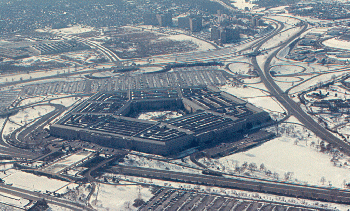The Department of Defense recently announced it would send nearly $3 billion more in weapons and assistance to Ukraine. The White House news of the largest Ukraine arms package yet - rockets, drones, 350,000 rounds of ammunition, was drowned out by President Biden's announcement to cancel federal student loan debt for almost half of the country's 43-million debt-saddled people.
So while our nation debated whether U.S. citizens should be burdened with huge predatory interest for seeking an education; predatory weapons of war were given the greenlight for Ukraine, even though there's no accountability for who will receive those weapons, including the neo-Nazi Azov Battalion, an official wing of the Ukrainian military.
The latest announcement from the DOD brings the total in weapons, ammunition, and military training, to escalate the war in Ukraine to at least $13.5 billion dollars.
We cannot call for peace in Ukraine while simultaneously supplying that country with advanced rocket systems and missiles that could lead to a direct war between the US and Russia, the world's most heavily armed nuclear nations.
A new study estimates that a nuclear war would kill five billion people, over 60% of the human population, with 360 million burning up in the immediate aftermath, the rest dying from starvation during a dark subzero winter.
We must step back from the brink - How?
Ultimately, the US, the nuclear states, and all NATO countries, must become signatories to the United Nations' - Treaty on the Prohibition of Nuclear Weapons (TPNW) - to outlaw the development, possession, use, and threatened use, of nuclear weapons.
In the short term we must support an immediate ceasefire in Ukraine, not simply around the Zaporizhzhia nuclear reactor under shelling in southeastern Ukraine, but throughout the entire country, where the Russian invasion has displaced millions and destroyed much of the Soviet-era infrastructure - rail, and electrical lines, bridges, hospitals.
We must tell Congress and the White House there is no military solution - only a diplomatic one - that acknowledges the security interests of all stakeholders.
If Ukraine and Russia can negotiate grain exports, prisoner exchanges, and an international inspection of a nuclear plant, they can reach a negotiated settlement. The more weapons we send, however, the less incentive there is to sit down and talk. Without the US and NATO fueling the war with more weapons, a settlement might have been reached months ago, perhaps as early as last March, when Turkey brokered a deal scuttled at the last minute.
This war might have been stopped before it started had NATO not expanded to Russia's neck and the US not shipped weapons to Ukraine to escalate a civil war with Russian separatists in Ukraine's industrial region.
It is long past time for President Biden to pick up the phone and engage in direct talks with Russia's President Vladamir Putin. There is much to talk about, starting with a request that Russia remove nuclear-capable missiles from Kaliningrad, a region sandwiched between Poland and Lithuania, in return for US agreement to rejoin US-Russia arms control agreements - 'Open Skies Treaty and Intermediate-Range Nuclear Forces Treaty' - abandoned under the Trump administration.
Also, up for negotiation might be the removal of US nuclear weapons from five of Europe's NATO countries - Turkey, Belgium, Germany, Italy, the Netherlands, with assurances that both Russia and US-dominated NATO will cease mock nuclear strikes.
Such a conversation could lead to a negotiated settlement in Ukraine. It has in the past. The 1962 Cuban Missile Crisis ended when former President John F. Kennedy agreed to remove US nuclear missiles from Turkey, and Italy, in exchange for Soviet removal of missiles from Cuba.
(Note: You can view every article as one long page if you sign up as an Advocate Member, or higher).





